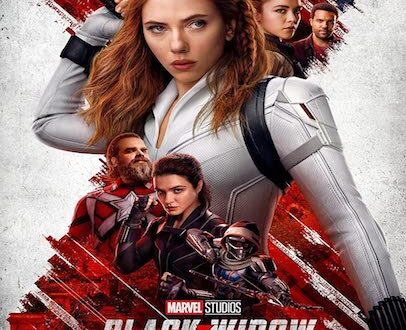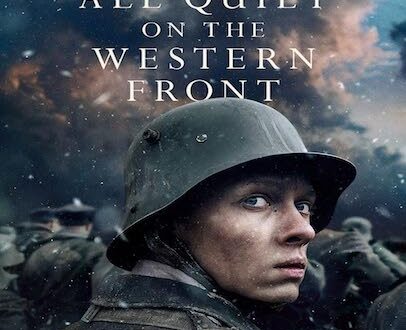The Woman King Analysis: Strong Black Women & Weak Controversy
I’m both excited and intimidated to write this review on The Woman King. There is just too much to rave about. TOO. MUCH!
I’m going to attempt to make this The Woman King analysis succinct yet comprehensive. Here I go…
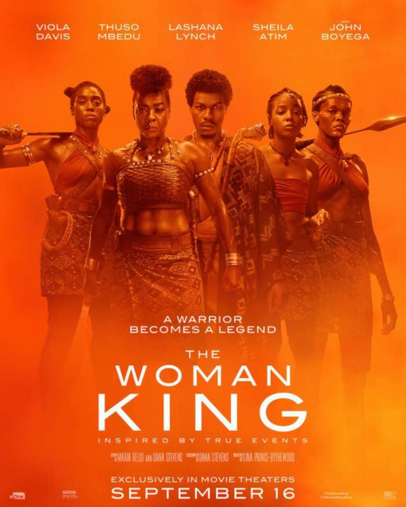
The Woman king is an epic, historical-drama film set in the early 1800's West African Kingdom of Dahomey. It tells the story of a lethal female regiment called the Agojie who fight to protect their land and people from the powerful Oyo empire.
The Woman King Analysis | Strong Black Women
Women’s Bodies
Our introduction to the menacing all-female warriors takes place in the Oyo empire’s campsite. The Agojie emerge from the tall grass with their bodies glistening in the moonlight. My first intelligent thought was dang, they really oiled them up. They look strong and well-lit.
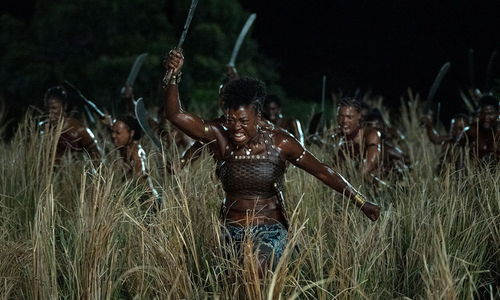
Throughout the film, women’s bodies are portrayed in an authentic, non-sexualized manner.
Their bodies are strong vessels of war – sturdy yet agile. They are lethal weapons, not tools for men’s pleasure.
You can tell that this is a female-directed film because there is no unnecessary sexualization of the women. Even in the areas where they could have sexualized the women, they didn’t, and I have so much respect for that artistic choice.
Speaking of choices, this film shows a lot of instances where women have a say in what they decide to do with their lives and with their bodies. They were presented with many choices of who they could be. We don’t often see that variety of choices for women, especially women in a historical context.
Yes, we still see the heartbreaking aspects of womanhood in history, but we also see so much more and we don’t get that diversity of possibilities enough.
Black Women Embracing The Soft Life
Have you heard about the soft life movement? Well, if you haven’t, it looks a little like this:
Kathleen Newman-Bremang, a journalist for Refinery 29, brilliantly elaborates on the soft life movement in her The Woman King review stating: “When strength has been the default, the requirement, and expectation, to be soft is a quiet defiance of a burden we never asked for.”
The soft life is a rejection of the “strong black woman” trope. It rejects the idea that black women have to fight all the time and the refusal to accept struggle as their life’s narrative.
The soft life is often associated with tapping into one’s femininity as well, with a lot of feminity training Youtube channels targeted towards black women specifically because we’re seen as the most masculine group of women.
Speaking honestly, watching The Woman King and seeing fierce black women in a “hard” role where they have to take on masculine traits of aggression and violence was a little upsetting at first.
Seeing black women on the front lines of battle reminded me of when Colin Kaepernick placed a protesting, dark-skinned black woman on the cover of his “Black Lives Matter” inspired book.
Why is society so comfortable with putting black women on the front lines?
Why do we always have to be strong, give up our desires, and protect rather than be protected? You know??
So, that narrative, and seeing black women again be in these “hard” positions rather than being loved and protected had me feeling a little disheartened.
It had me thinking about how Viola Davis seems to be the queen of struggling on screen. Lupita Nyongo’s breakout role was as an abused slave, and Octavia Spencer was the disrespected house help to a white family.
I don’t want to see black womanhood, especially dark-skinned black womanhood, associated with fighting, crying, and struggling all the time.
But then again, within The Woman King narrative, there were princesses in the palace, beautiful and ornately adorned women who did get to live the soft life. So, black women living the soft life is still shown and acknowledged within the film.
When the main character, Nawi, first entered the king’s palace, she was given two options (the red pill or the blue pill if you will): she could choose to join the Agojie (the hard life) or she could choose to be one of the king’s wives (the soft life).
Every one of the female warriors who lived the hard life chose the hard life. It was not thrust upon them due to their skin color, so that – I could get behind a little more.
Because of the different, multifaceted views of black womanhood, I let my grudges go midway through the movie.
Even within “the hard life,” among the female warriors, there were still beautiful moments of vulnerability, laughter, and comradery. There is softness within the strength. The two are not mutually exclusive.
Viola Davis said it best, “I think strong is a word that needs to be redefined.”
Black Sisterhood
I don’t know about you but I feel like black sisterhood is something special.
There’s a special understanding that you have among black women and those who share the black experience.
Even going to watch the movie, I saw this group of beautiful black women with kente head wraps and we knew what was up. We knew what we both were coming to see and which narrative we came to support and uplift. I made some friends that day.
There’s a scene within the film where the Agojie are all sharing blood as a ceremonial initiation within the female army. This moment reminded me of the biblical power in the blood and blood covenants. The connection among the sisters runs deep spiritually.
Also, the singing during that blood ritual was absolutely captivating. So moving, beautiful, and soulful.
“Love makes you weak,” they say, yet, they love their sisterhood more than life itself.
The Woman King Movie Review Journal Entry
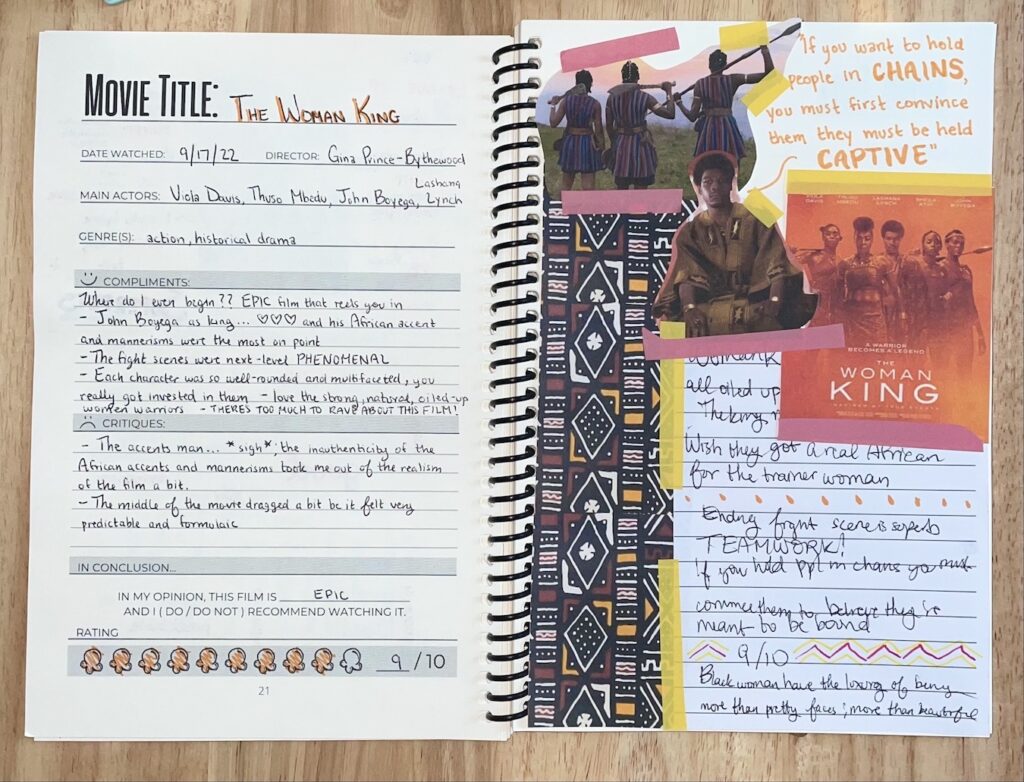
The Woman King Controversy
So, I had no idea that the Agojie were a real thing until after this movie which first of all, bonus points to this movie for expanding my historical knowledge.
The whole controversy with The Woman King is honestly, kind of stupid. Idk, I’m just confused about who people are being offended for.
So apparently, people find that this movie, The Woman King, is uplifting a female army that heavily participated in selling African slaves and that makes them mad.
You can read some of the arguments for people boycotting The Woman King here.
To better understand these arguments, we need a little quick history lesson on the Agojie.
The Woman King Real Story
The Agojie were a powerful all-female army, mainly relevant in 19th century West Africa, that trained and fought all year round mainly for the purpose of expanding the Dahomey Kingdom through human trade. In other words, they were big players in the slave trade and built their kingdom largely on human trafficking money.
They would battle other nations and sell the captors of the fallen nations to slave traders. Pretty much selling black people to white people (and other black people), starting the devaluation of black lives.
Ain’t that funny? Black people were the ones who first devalued their own lives by selling their own people.
If you want to hold people in chains, you must first convince them they must be held captive.
King Ghezo, The Woman King
How The Woman King Changed the Narrative
Now, black nations selling other black nations as slaves is a disappointing reality of African history, yet, The Woman King re-wired this historically-based narrative to focus on the strength and grit of powerful black women rather than reinforce the reality of the Agojie’s short-sidedness and how that’s affected the entire black race today.
The strength and power of the deadly female regiment are what influenced the French, who later overtook the Dahomey kingdom, to greatly hinder women’s rights. The French were intimidated by the ferociousness of the Agojie women and banned women from political leadership and education, a stark contrast to the opportunities given to the Agojie women in Dahomey.
So yes, the Dahomey nation was very backward with its low regard for human life, yet still progressive in its approach to gender equality. It’s almost like entities can have both good and bad qualities at the same time. Wild how that works.
The Woman King acknowledged the Agojie’s disappointing involvement in the slave trade and very clearly condemned it in the film, therefore choosing to convince the king in the film to replace the slave trade with selling the land’s resources instead.
It’s Not About History…
Is this a historically-accurate approach? No, but is this movie made for the history channel?? No.
It’s flipping entertainment! If you want historical accuracy, go read a textbook.
I think people are just surprised to find out that black women are more than victims. We can be evil. We can be kind. There’s no limit to what we can be. Just like white people have the opportunity to be a plethora of characters on the screen and in history, so do we.
The argument that this movie is elevating a slave-trading nation is actual bull-dookie. This movie is obviously against slavery and is not meant to be a spot-on historical re-enactment of what happened in the Dahomey tribe back then. This film is an empowerment of black women and if you don’t see that, you need to see an optometrist.
Abeg, it’s not everyday victimhood. It’s not everyday struggle. Please, let’s just enjoy multi-faceted, talented, powerful black women on screen and a fictional take on a fascinating aspect of history. It’s really nothing more than that.
If we’re not complaining about white historical fiction, then what is this nonsense that’s happening now? If you know, then let me know cuz I don’t understand.
The Woman King Analysis | Technical Elements
The African Accents
You know we got to speak on it – the accents.
You could tell who was an African actor and who was an African American actor by the accents. It was a bit distracting and made it a little bit more difficult to suspend the disbelief that this film was real.
Some parts of the accents and the war cries felt borderline mockingly bad. Like, I felt a twinge of offense. If you’ve been immersed in any African culture throughout your childhood, you could tell the mannerisms and the accents in The Woman King were not authentic to the vessels they were coming from in regards to the African American actors.
However — staying fixated on this slightly off detail would dangerously do a disservice to the genuinely very beautiful, uplifting movie which honored the strength of Agojie. This film portrayed an Agojie story decently while still balancing the authenticity of the art with the necessity of creating a project that could be commercially successful as well.
You gotta put big, well-known names on a project like this to get it seen. So yes, you might need people who are more Americanized to promote this African story.
The Fight Scenes
Wow. Like wow. It’s the resourcefulness for me. The diversity of the weapons, the athleticism, the details – it was just superb.
The fight scenes were meticulous enough that the viewer was able to be impressed with the female warrior’s skill. It wasn’t just brief flashes of movement, each movement was intricate and intentional and my mind was blown.
The battles also somehow got more and more awestriking as the film went on. The final battle scene – my goodness – on point.
The Story
The setting felt very authentic. It gave me Nigerian movie but in 4K.
There was a bit of predictability in the story as it moved on and the narrative lulls in the middle but picks up greatly in the end.
The pace of the plot wasn’t consistently slow or fast, but it wavered in pace from one story point to the next.
Despite me being incredibly nitpicky, this film offers a bit of Rocky, a bit of Gladiator, and even a bit of Pocahontas.
Whatever little inconsistencies in the details of the film are completely overshadowed by the beautiful big picture that the film reveals by its end.
The Actors
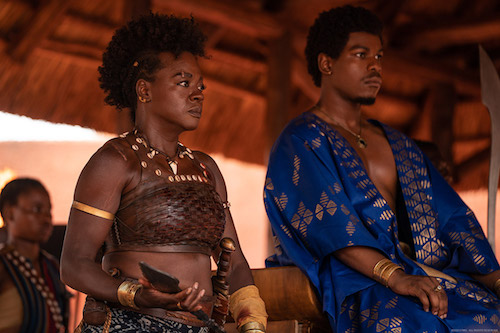
John Boyega as the king… wow. His confidence and presence as the king…
…and you could tell he was raised in an African home because he had an innate understanding of the accents and mannerisms of African people. This understanding was so evident in his acting.
The main actress, Thuso Mbedu – SUPERB. And she’s flipping 31!? Like, wow, black really is refusing to crack with her!
She gave a heart-wrenchingly good performance yet still provided moments of humor and levity. She understood the assignment, to say the least.
I have an immeasurable amount of respect for Viola Davis. Like, when you say commit, this woman refuses to give anything less than 110% to every single project she’s in and it’s evident.
She didn’t have the innate dialect of an African but not having the native tongue is forgivable. Her stellar performance overshadowed the questionable accent. There’s nothing else I could possibly fault her for.
Lashana Lynch played an intense and really lovable character but again, the accent and mannerisms really didn’t click for me with her. Like out of everyone her African portrayal was the most dissonant. I could see what she was trying to do but it didn’t click. However, I was surprised by how invested I became in her character by the end of the movie. She won me over emotionally.
And I took the quiz to find out which Agojie I am, turns out I’m Lynch’s character, Igozie.
YOU ARE IZOGIE. YOU ARE A LEADER WHO EMPLOYS THE MOST CLEVER FIGHTING TACTICS. https://t.co/wdni9pepyo
— In My Opinion Flicks (@IMOFlicks) September 18, 2022
I’m honored 😭
Sheila Atim – her beauty is so sharp and piercing and out of all of the warriors, she felt the warmest and most loving. Her singing voice during the Agojie blood sister ceremony was ethereal.
All of the Agojie actresses did the majority, if not all of their stunts. Their stunt coordinator even went on to say that the women of The Woman King were more resilient and hardcore than the men of popular action films.
Female Power!
I’m very much NOT surprised to hear that these black actresses were not hindered by a little pain, similar to the Agojie woman. It’s just so lovely to see the depth and the complexity of black, female strength on display.
In the same vein — you don’t understand how happy it made my heart to see the credits roll and just see a long list of women’s names who led the movie, directed it, executive produced it, everything like – WHAT?!?
Big props to Gina Prince-Bythewood, the director. Love & Basketball, The Old Guard, and now this!? She just keeps outdoing herself!
I’m so freaking proud that women made something so epic in a man’s world. I really hope to see more projects like this where black women get the opportunity to show just how unstoppable, resilient, talented, incredible, etc… we are.
In Conclusion…
*whew* I made it to the end. I’ve tried my best to capture this grand movie with mere words.
In conclusion, The Woman King is THAT movie. It deserves awards upon awards, not because these women are black but because these women are talented.
This film brought the pinnacle of skill to its direction, to its cinematography, to its combat scenes, and to its characters.
The Woman King is not a glorification of slavers, nor is it a ploy to falsely label a group of ruthless human traffickers as heroes, rather it’s a celebration of the strength, intelligence, and boundlessness of black women that is rarely ever displayed on big screens.
The focus of The Woman King is not on the heinous mistakes of the Dahomey tribe but rather on its progressive recognition of a woman’s strength and agency in a time when such was unheard of.
Rating: 9/10
What are your thoughts on the film? Let me know in the comments below!
And be sure to subscribe for the latest blog updates (form in sidebar).
Peace, love, and lots of popcorn,
IMO







